The Ahzab (Khandak, Trench)
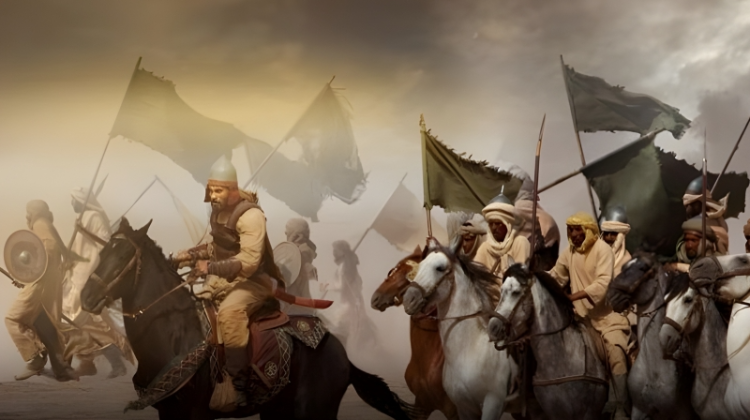
The Ahzab (Khandak, Trench)
Determined to crush and eliminate the Muslims once and for all the Qurayesh and other unbelieving forces mustered and organized a huge army consisting of many major and minor tribes of Arabia including the large and powerful tribe of Gatafan besides the Qurayesh themselves. They also managed to coerce the Jewish Bani Qurayza tribe of which Madina itself who were treaty-bound to fight along with the Messenger to defend Madina into agreeing to betray him and attack Muslims from the rear. The Messenger of Allah when informed about the number and strength of the combined forces of disbelief and who was facing them with only one fourth of the number of the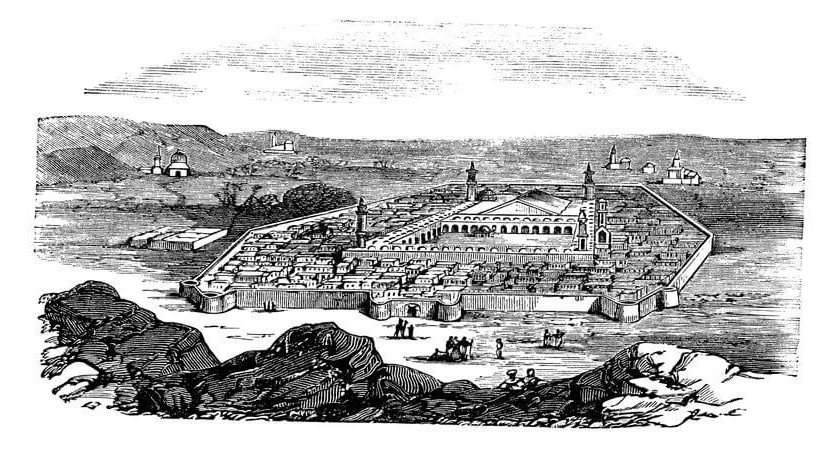 enemy said only that "Allah is enough for us." And sure enough Allah was really enough as the huge force of the disbelief was unable to cross the trench around Madina in number and finally was struck by a storm from Allah and was scattered, disorganized, lost morale and fled away. So undoubtedly the battle of Ahzab, like Uhud, was defensive.
enemy said only that "Allah is enough for us." And sure enough Allah was really enough as the huge force of the disbelief was unable to cross the trench around Madina in number and finally was struck by a storm from Allah and was scattered, disorganized, lost morale and fled away. So undoubtedly the battle of Ahzab, like Uhud, was defensive.
As I said before in all wars, either offensive, or defensive, there must be battles, which are defensive. Even in aggressive wars there must arise circumstances when defensive battles must be fought. That was exactly the case with the battles of Uhud and Ahzab. According to the policy set by Allah Himself, His Messenger started the aggressive war against the unbelief by sending out armed aggressive patrols with order to attack the enemy whenever they come in contact with them if the circumstances permit. The very first arrow was shot by one of the fighters of these patrols and the war thus ensued continued for over half a century. We must remember that numerically the Messenger's companions were insignificant compared to the enemy, hence he could not go on the offensive in a big way, so he kept on attacking them wherever he could. Whenever the enemy came to attack them in force, he went on defensive, like Uhud and Ahzab. Till Uhud the Messenger was always on the offensive and after the Uhud he immediately went on the offensive again till Ahzab. All though his strength was increasing and the enemy's decreasing, but he never reached a position of strength when he could attack the very centre of enemy's strength, Makkah till after the treaty of Hudaibiyah when Allah gave His Messenger the tidings of the coming victory in the Surah Fatah.129 Had he gained enough strength earlier he would have attacked and conquered Makka, without any delay. It is indisputable history that soon after the Hejrat (Migration) to Madina the Messenger started sending out armed aggressive patrols and had sent seven such patrols till the battle of Badr which itself was aggressive on the part of the Messenger. Between the time of Badr and Uhud, roughly a year, the Messenger of Allah sent out six aggressive patrols.
After the battle of Uhud the Messenger kept on sending the patrols as before and dispatched four more of them till the battle of the Ahzab. Only hours after Ahzab where he was compelled to fight on the defensive because of the enemy's numerical superiority of one to four he went on the offensive and besieged the Jewish tribe of Bani Qurayza to punish them for their treachery and betrayal of the treaty with the Messenger. The present day Muslims who are so punctual and unfailing in their prescribed Salah (prayers) but not only unconcerned but even against the Jehad (utmost struggle) and Qetal (armed fight), should know that when sending the contingent of Mojaheds (fighters) the Messenger of Allah ordered them not to stop anywhere on their way and to skip the Asar (late afternoon) prayer, hurry and attack the Jews. This he did because as the Messenger of Allah knew the priorities of Islam, that the Qetal (armed fight) was much more important than the prayer, which is training for the Jehad. His Aqidah and the present-day Muslim's Aqidah are as different as day is to night: the latter renders whole life's good amals (actions) useless, futile; it even makes and has made the Iman (belief, faith of the present-day Muslims) itself meaningless. After punishing the Bani Quraizah he went out with two hundred horsemen to attack Bani Lihyan to avenge his followers at Al-Raji. But the people of Bani Lihyan fled to mountains and he failed to achieve his purpose. Next he went out pursuing the band of enemies who raided his milch-camels. Soon after the Messenger led a patrol to attack Bani Al-Mustaliq of whom a number of the Moshreks (Polytheists) were killed, their women, children and men taken as booty. It is here where a Mo'men fighter, Hesham bin Subha was mistakenly killed by a fellow Mojahed. Then, after the armistice of Hudaibiaah in A.H. 07, the Messenger went out and attacked Khaibar, a conglomeration of different sizes of forts and castles, a very secure bastion of the Jews. After defeating the Jews and taking prisoners and booty from Khaibar the Messenger proceeded to Wadiul Qura and besieged the tribe there for several days.
On his return to Madina he kept on sending out armed patrols as before and sent one as far as Syria in A.H. 08. By this time the Messenger grew in strength so that in this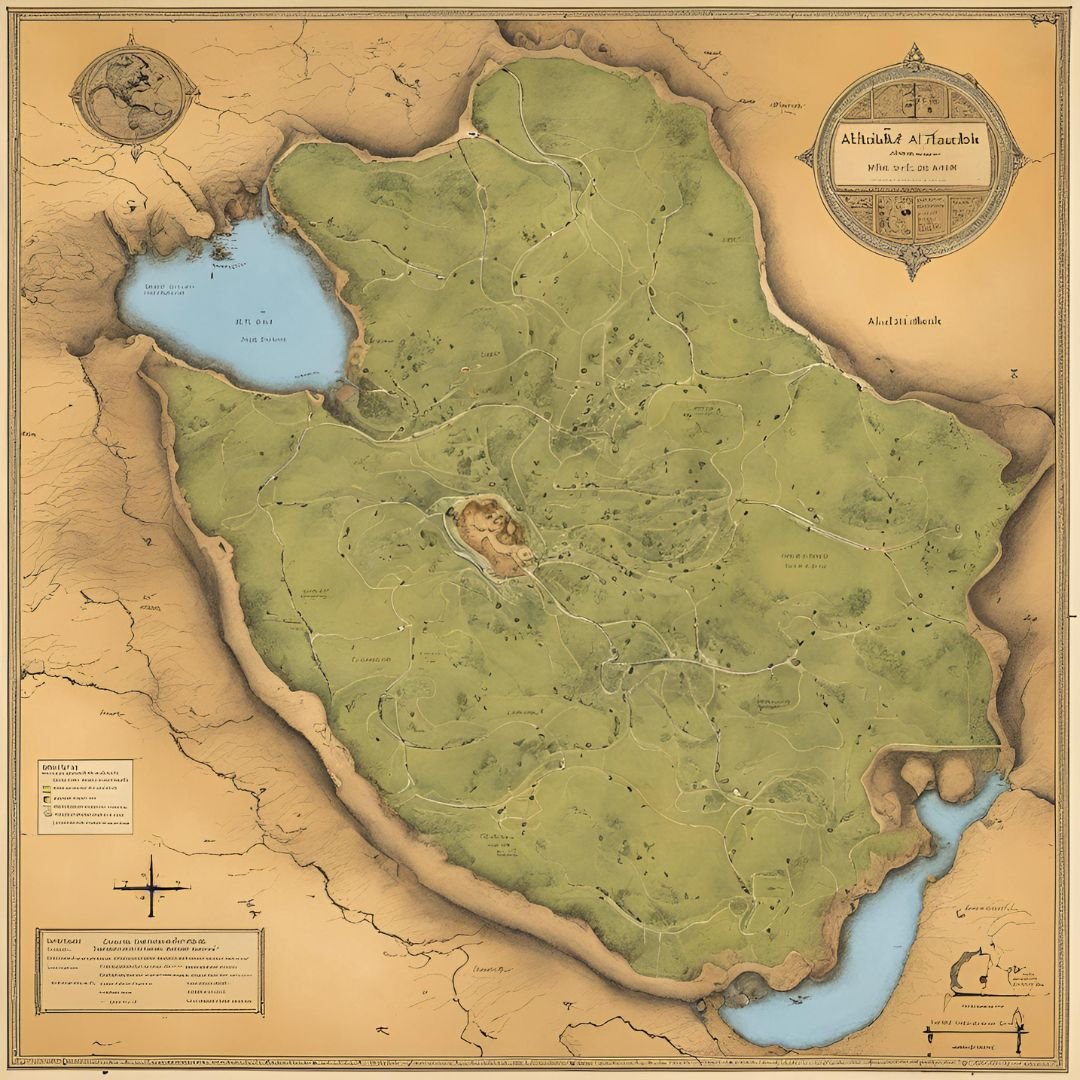 expedition he was able to send 3000 fighters instead of the small numbers he could muster previously. Unexpectedly this small band of Mojaheds came face to face with two hundred thousand strong Eastern Roman Empire forces consisting of Greeks and Arab Christians under the Emperor Heracles himself who happened to be in that region at that time. This small force of only 3000 under the command of Zaed (Ra.) bin Haritha was under order to attack the enemy on contact as in all previous patrols. But this time it meant attacking an enemy 67 times larger than themselves, an act of suicide. It is history that, this was exactly what they did, attacked the enemy head on. One wonders what motivation, unity, discipline, obedience, and above all eagerness to die for the love of Allah and His Messenger were infused into those human beings to make them do what they did. Commander after commanders fell, Mojaheds were decimated, but they did not flinch nor step back. After all the commanders appointed by the Messenger fell, Khaled (Ra) bin Walid took command. Khaled (Ra) a brilliant cavalry commander in his Moshrek (Polytheist) life, who was one of the causes of the near defeat of the Muslims in the battle of Uhud, a new convert to Islam and instead of fighting to the last man, as was the wont of the Mo'mens, tried to save whatever he could of the small band of the Mojaheds from utter annihilation. Fighting fiercely and making some brilliant strategic move he finally could extricate the Mojaheds from certain extermination.
expedition he was able to send 3000 fighters instead of the small numbers he could muster previously. Unexpectedly this small band of Mojaheds came face to face with two hundred thousand strong Eastern Roman Empire forces consisting of Greeks and Arab Christians under the Emperor Heracles himself who happened to be in that region at that time. This small force of only 3000 under the command of Zaed (Ra.) bin Haritha was under order to attack the enemy on contact as in all previous patrols. But this time it meant attacking an enemy 67 times larger than themselves, an act of suicide. It is history that, this was exactly what they did, attacked the enemy head on. One wonders what motivation, unity, discipline, obedience, and above all eagerness to die for the love of Allah and His Messenger were infused into those human beings to make them do what they did. Commander after commanders fell, Mojaheds were decimated, but they did not flinch nor step back. After all the commanders appointed by the Messenger fell, Khaled (Ra) bin Walid took command. Khaled (Ra) a brilliant cavalry commander in his Moshrek (Polytheist) life, who was one of the causes of the near defeat of the Muslims in the battle of Uhud, a new convert to Islam and instead of fighting to the last man, as was the wont of the Mo'mens, tried to save whatever he could of the small band of the Mojaheds from utter annihilation. Fighting fiercely and making some brilliant strategic move he finally could extricate the Mojaheds from certain extermination.
It should be of great interest to the present day 'Muslims' who, because of the thoroughly perverted "Islam" they observe, which turns lions into jackals and rats, what happened when the remnant of the expeditionary force returned to Madina. In any other time, in any other nation Khaled (Ra) would have been hailed as a hero, would have been decorated with the highest military medals and awards for his brilliant achievement. Instead Khaled (Ra) and his warriors who fought at 1:67 ratio of the well trained and well equipped Imperial army, faced taunts and insults from their people. People of Madina started to throw dirt and dust to them saying- "You furrars (runaways)!! You fled from the fight in the way of Allah".130 People avoided talking with them, their wives refused to allow them in their beds; they were confined in their houses fearing the taunts and insults so much so that they stopped attending the prayers in Al-Masjid an-Nabawi (Mosque of the Messenger). Their lives would have been worse had not the Messenger of Allah intervened and told the people not to behave that way with the Mojaheds of Mu'ta, saying - "No, they are not runaways, but will come again, Allah willing" meaning, they shall fight again as the Mo'men Mojaheds fight.
In this incident one gets a glimpse of the Ummah (nation) the Messenger of Allah built, its Aqaed (comprehension, perception and attitude), its character and its psyche. A nation which greets a commander of an army with taunts, insults and ridicules for an act which any other nation would have greeted with the greatest honor and award and made him a national hero for the same i.e. saving several thousand troops from utter annihilation by dint of his courage, valor and military leadership. The difference of the attitude of the Ummat-e-Mohammadi and other nations is that in their nation the highest honor and the highest reward for a member of this nation is in sacrificing his or her life and worldly properties in the way of Allah in the battle field. The honor is that the rest of the nation is forbidden to say they are dead, and the reward is immediate admittance to Jannah (Paradise) without any question about his or her activities in this life. This honor and this reward have not been assigned for any other class of people in Islam. So the people of the Ummah the Messenger built gave priority to laying down their lives in the battle-fields than any other Amal (actions, acts of piety). Parents used to send their sons to fight and pray to Allah that He grant them martyrdom and that they don't come back to them; wives used to hand swords to their husbands' belts and prayed to Allah to accept them as martyrs so that they can stand before their Lord in the Day of Judgment as wives of martyrs. A brother and son of Omar (Ra) bin Khattab went to fight in the battle of Yamama. Omar's (Ra) brother was martyred and his son Abdullah (Ra) came back victorious. As Abdullah (Ra) faced his father Omar (Ra) shouted at him saying- "You wretched, your uncle achieved martyrdom and you have come back empty handed?" Abdullah (Ra) wept and said- "Father, I have tried my best to get martyred but Allah has not granted me that, how can I help that?" Omar (Ra) said- "Away from me you unfortunate."131 That was the mentality, the attitude of the people of the Ummah the Messenger built towards Islam, exactly the opposite of the Aqidah of the present day 'Muslim' claiming to be the same Ummah.
To go back to the main print of discussion; some time after the battle of Mu'ta, the Qurayesh broke the treaty of Hudaibiyah by helping and joining the tribe of Bani Bakr in attacking the tribe of Khuza. After doing that they realized that they had made a terrible blunder by breaking the treaty with the Messenger of Allah.
Since the Hejrat (Migration) to Madina and going on the offensive the strength of the Messenger was growing and that of the Qurayesh was dwindling and by now the small band of Mo'men (believer) whom the Qurayesh looked down with contempt and disdain, humiliated and tortured and even killed at will had grown into a formidable force they could no longer ignore and had grown actually afraid of. Soon they realized the folly of breaking the treaty and became so apprehensive that the leader of the Qurayesh Abu Suf'yan himself traveled to Madina to repair the damage and renew the treaty.
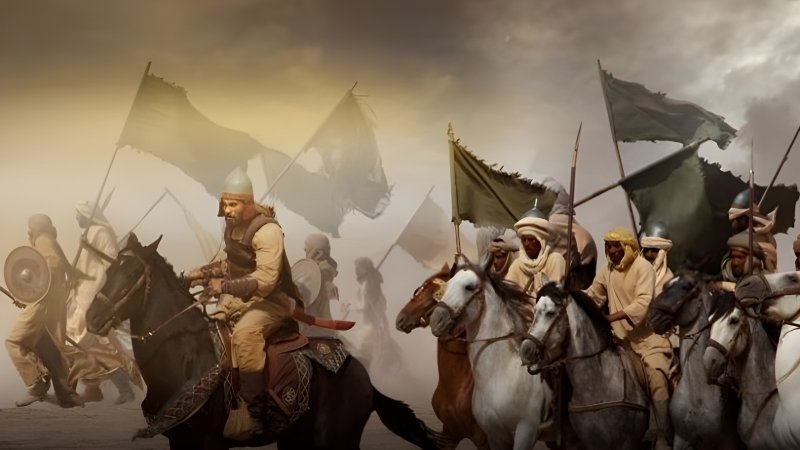 Long before this the Messenger of Allah became aware of his own strength and position and knew that he was strong enough now to conquer Makkah. But since he was treaty bound with the Qurayesh be remained quiet. When Abu Suf'yan came to him and wanted to continue the treaty he remained silent and did not talk with him. In desperation Abu Suf'yan approached his daughter, the Messenger's wife, Umme Habiba (Ra), Omar (Ra), Ali (Ra), and Abu Bakr (Ra) and entreated them to request the Messenger to continue with the treaty. None agreed and Abu Suf'yan had to go back to Makkah empty handed. Free of the binding of the treaty the Messenger ordered preparation for an expedition without making known where to. He mustered a large army of ten thousand Mojaheds and proceeded towards Makkah. He wanted to surprise the Qurayesh so that they could not prepare and put up resistance and so there be least bloodshed. So avoiding the usual route he took his army through detours and unused ways and was entirely successful and Makkah, totally surprised surrendered unconditionally without any significant resistance. Advocates of only defensive wars in Islam, please note that the Messenger of Allah avoided the no hostility state with the Qurayesh by refusing Abu Suf'yans entreaties to extend the truce and proceeded against Makkah when the Qurayesh were too weak to defend themselves, not to speak of attacking the Muslims.
Long before this the Messenger of Allah became aware of his own strength and position and knew that he was strong enough now to conquer Makkah. But since he was treaty bound with the Qurayesh be remained quiet. When Abu Suf'yan came to him and wanted to continue the treaty he remained silent and did not talk with him. In desperation Abu Suf'yan approached his daughter, the Messenger's wife, Umme Habiba (Ra), Omar (Ra), Ali (Ra), and Abu Bakr (Ra) and entreated them to request the Messenger to continue with the treaty. None agreed and Abu Suf'yan had to go back to Makkah empty handed. Free of the binding of the treaty the Messenger ordered preparation for an expedition without making known where to. He mustered a large army of ten thousand Mojaheds and proceeded towards Makkah. He wanted to surprise the Qurayesh so that they could not prepare and put up resistance and so there be least bloodshed. So avoiding the usual route he took his army through detours and unused ways and was entirely successful and Makkah, totally surprised surrendered unconditionally without any significant resistance. Advocates of only defensive wars in Islam, please note that the Messenger of Allah avoided the no hostility state with the Qurayesh by refusing Abu Suf'yans entreaties to extend the truce and proceeded against Makkah when the Qurayesh were too weak to defend themselves, not to speak of attacking the Muslims.
Next comes the battle of Hunain. While still in Makkah the Messenger received news that the tribe of Hawazin was gathering other tribes to fight him. The news being reliable he decided to fight them and proceeded to attack them in their region. The Hawazin and their allies were waiting in a Wadih valley and ambushed the Mojaheds. The attack was fierce and the Mojahed army, taken absolutely by surprise, scattered. However soon they regrouped and the battle was won. We should remember that though the Hawazin prepared to fight the Mo'mens, it was the Mo'mens who proceeded to attack them and that unlike previous conflicts this time the Mo'mens numbered 12000 and the Hawazins and the tribes with them consisted only about 6000. Not much of a defensive battle for the Messenger.
From Hunain the Messenger proceeded to Ta'if and besieged the town as people there were preparing to defend themselves from the Mo'mens. But the Moshreks there defended themselves so resolutely that the Messenger could not occupy Ta'if and he withdrew from there and went back to Madina. If one examines carefully the history of all the warfares of the Messenger he is sure to see that from the time of the Hejrat (Migration) to Madina till his passing all the military conflicts, and there were over 100 of them, all were offensive except the battles of Uhud and Ahzab. On these two occasions the Qurayesh and other Moshrek tribes mustered considerable force and came to destroy the Muslims and naturally the Messenger had go on the defensive. These continuous offensive actions were entirely compatible with the policy and process to establish the Deen on earth, set by none other than Allah Himself. How could His Messenger adopt any other policy or resort to any other process? That was just impossible for him. Today the claimants of being his Ummah are turning heaven and earth to prove just the opposite, that he never went on the offensive, fought only when he had no other way and very reluctantly at that. They belie their own history. Allah is also rewarding them with what they deserve; defeat, humiliation, ridicule, insult, contempt by the rest of the Mankind, He is having them tortured, killed, their residence, their countries bombed into ruins, their women raped by the thousands.
ENDNOTE
129 Verily, We have bestowed on you a manifest victory. (The Qur’an, Sura Al-Fatah-1)
130 The men began to throw dirt at the army, saying, "You runaways, you fled in the way of God!" (The Life of Muhammad by Ibn Ishaq, Pg. 534)
131 Annals of the Early Caliphate by sir william muir, Page: 45-46
Images Related to this Post

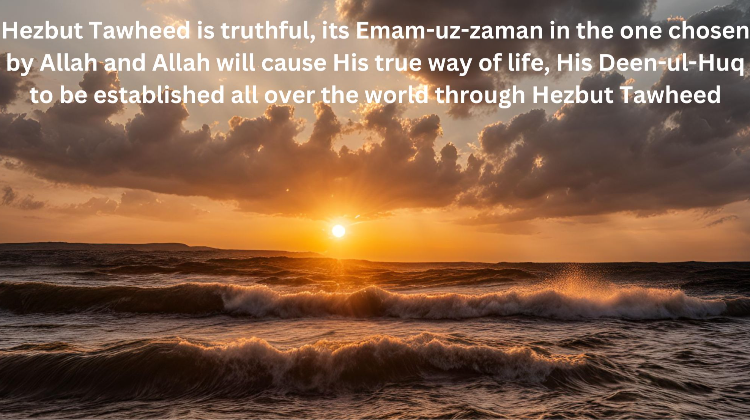

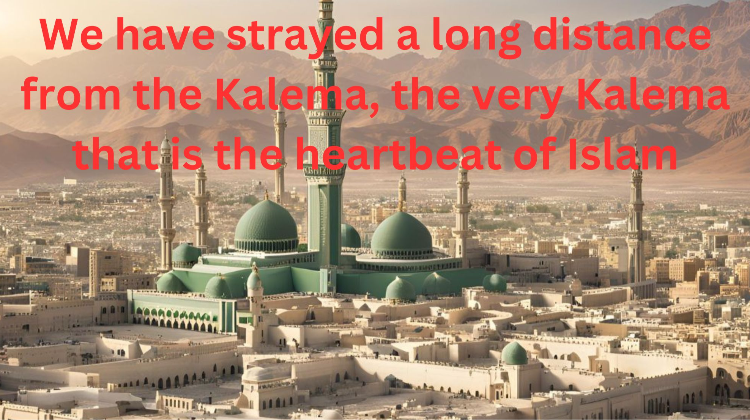
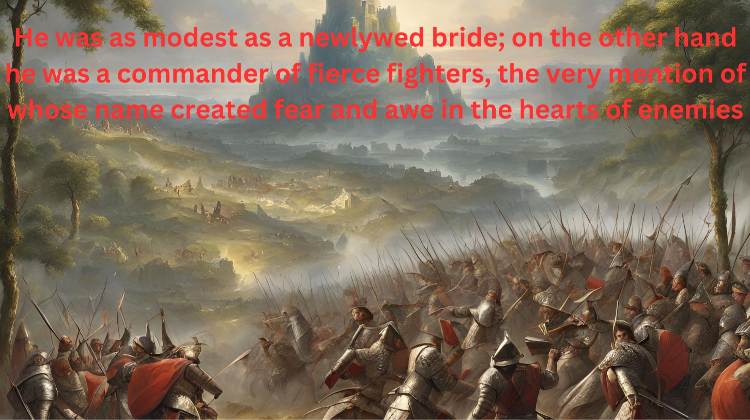
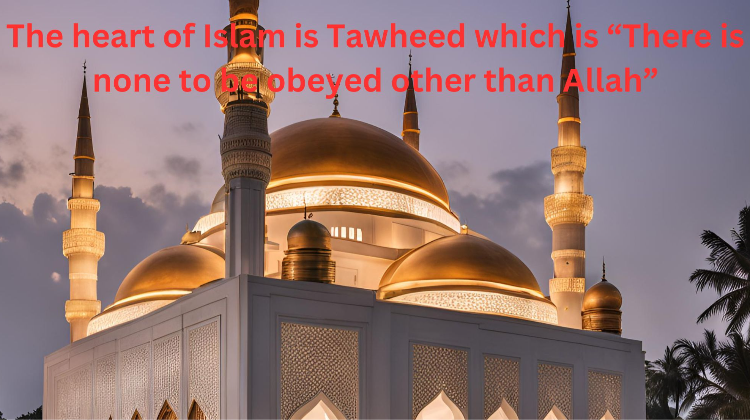
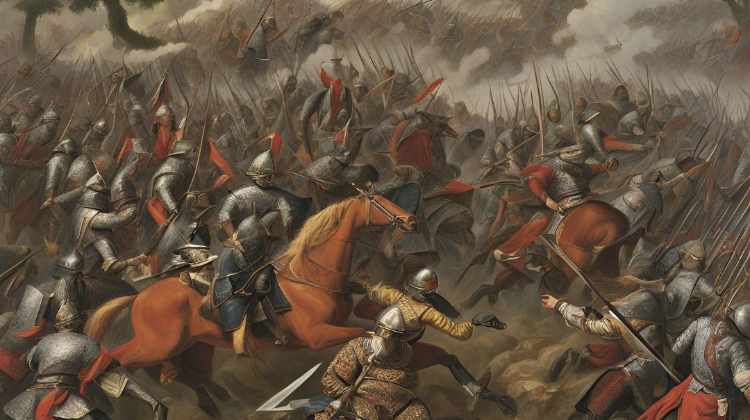


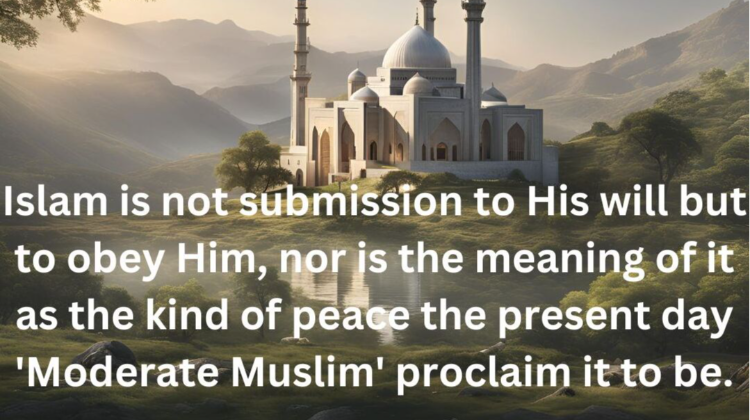
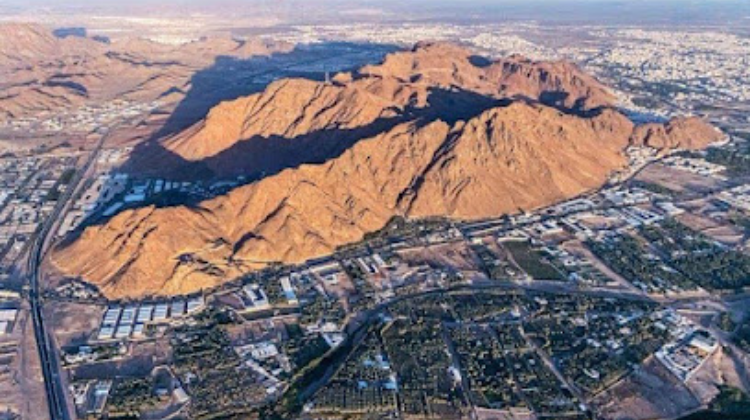
Leave a Comment